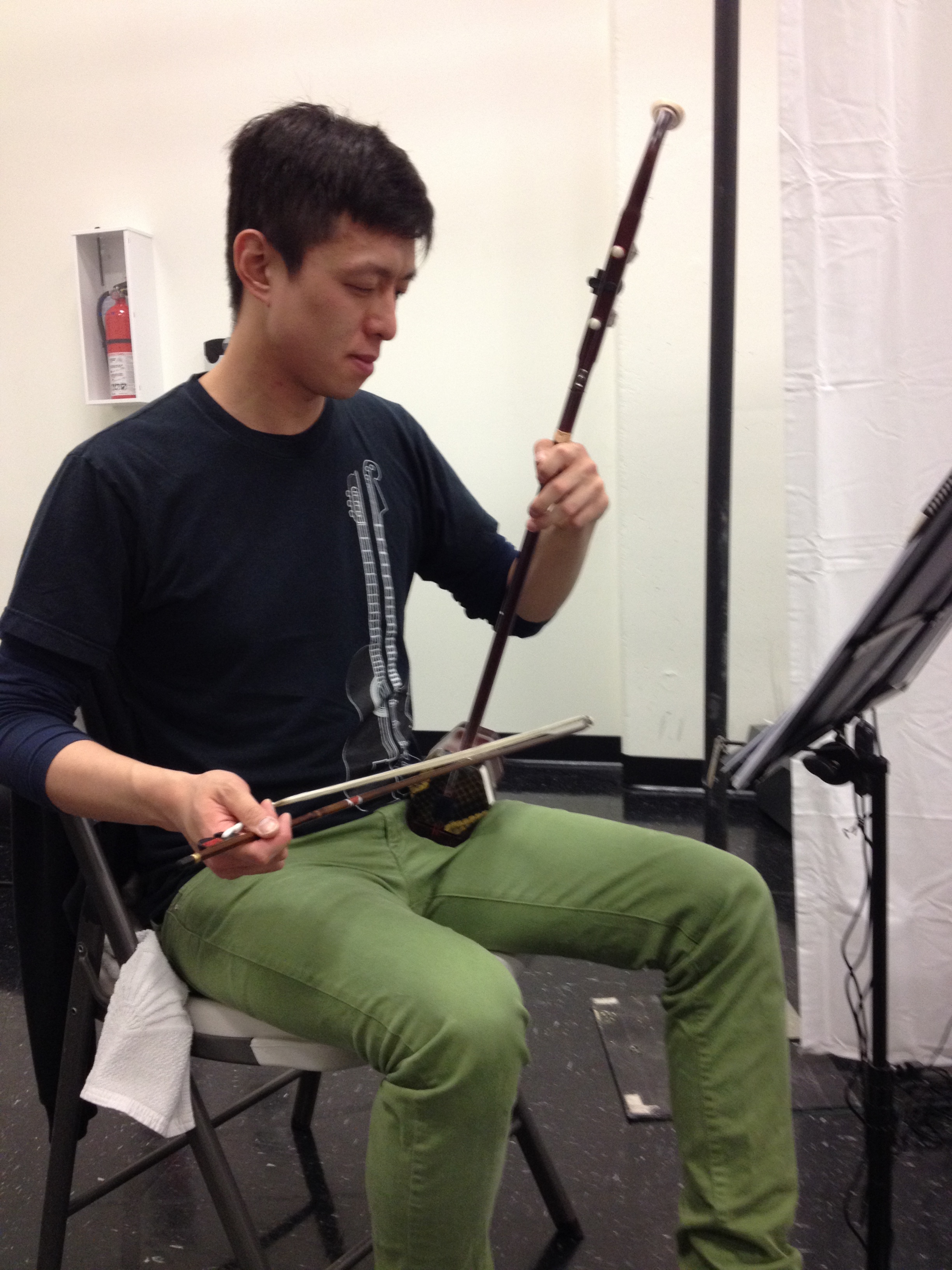Brian Chow and his erhu.
Say hello to the erhu (pronounced ar-hoo). The erhu is a traditional Chinese two-stringed instrument that I've included in the orchestrations for Mountain. It has been a welcome challenge getting to know the erhu and composing for its specific qualities. There were some limitations: no pizzicato, no double-stops (since the bow is placed between the two strings), and the combination of a very rich low range and a thinner high range. The erhu also favors certain keys over others, so I did my best to keep the key signatures throughout the show within that realm. I am still learning the instrument, and will probably learn more once we get it amped in our performance space and mixed in with mic'd actors. I can't say I've perfected the ability to write for erhu, but I have found the process of getting to know it very rewarding. The result is that I have woven a Chinese instrument into the fabric of the score, giving the music a connection to the culture from which the stories stem.
I would be amiss if I neglected to mention our erhu player, Mr. Brian Chow. Finding him was quite the feat. I Google- and Facebook-stalked, I mean... searched, for hours trying to find a Bay Area erhu player who would be open to being part of a theatrical piece. Last Fall, I found Brian, who at the time was studying erhu at the Conservatory of Music in Beijing. As luck would have it, Brian was returning to the States in January, just in time to start rehearsals for Mountain. I was beyond thrilled! Working with Brian has been such a treat, and he brings a level of professionalism and dedication to his art and performance that has been a great asset to our production as a whole. So, audiences will not just be taking in Grace Lin's re-imagining of traditional Chinese folk tales; they will also be able to experience the beautiful tones of a traditional Chinese instrument!
In other news, I made a few more script changes to tighten up the pacing this past weekend. These flexible and up-for-anything actors are rolling with the changes and making this magic happen! We're at the stage of running the show, working specific notes and smoothing out transitions to get us ready for TECH NEXT WEEK!!! Can't wait for you all to see this brand-new work!




